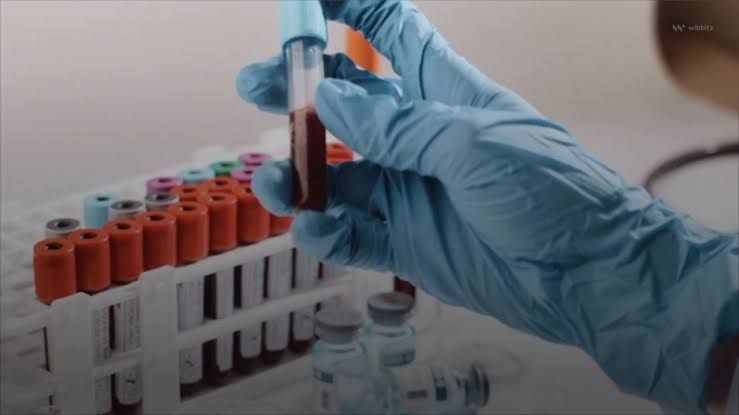
Your capacity to start and keep a happy, healthy union is unaffected by your blood type. If you and your spouse want to have biological children, there are certain worries regarding blood type compatibility; however, there are ways to reduce these risks while you are pregnant. But in case of an emergency, it's an excellent idea to be aware of your partner's blood type. Additionally, you might even be able to give your partner blood in an emergency, depending on your blood types.
Which are the many blood types? Each person possesses a blood type. The four main blood types are as follows:
A
B
O
AB
The main distinction between these categories is if antigens that can trigger an immunological response are present or absent. Together with these four groups, each group may also contain a protein known as Rh factor, which can either be present (+) or absent (-). This further divides blood types into eight prevalent categories:
A+
A-
B+
B-
O+
O-
AB+
AB-
Because it is inherited, your blood group is predetermined from birth. Your blood type cannot be changed after birth. What is the impact of blood compatibility on pregnancy? Blood group compatibility only becomes an issue for a relationship when there is a pregnancy in which both partners are their natural parents. RH factor is to blame for that.
Since Rh factor is a hereditary protein, your parents will decide whether you are Rh positive (+) or Rh negative (-). Rh positive is the most typical kind. Although it may not have an impact on your health, whether Rh positive or negative may have an impact on your pregnancy.
Rh factor in relation to pregnancy When the child is Rh+ and the mother by blood is Rh-, the Rh factor may become an issue. An immunological reaction may be triggered by blood cells from a Rh+ newborn entering the bloodstream of its Rh- mother.
Antibodies produced by the mother's body may target the baby's Rh+ red blood cells. During your initial prenatal appointment, your physician may recommend a blood group and Rh factor screening. If you test negative for Rh factor, your doctor will retest your blood later in the pregnancy to check for the formation of antibodies towards Rh factor. According to that, your child is Rh+.
Your doctor will closely monitor your pregnancy for any linked complications and may recommend special care if they suspect Rh incompatibility.
While your blood and your unborn child's blood do not usually mix while you are pregnant, there is a chance that a little quantity of your blood may come into contact with your unborn child's blood during delivery. In the event that this occurs due to Rh incompatibility, your body may create Rh antibodies in opposition to Rh factor.
An Rh+ infant will not have issues with these antibodies throughout the first trimester of pregnancy. However, if you become pregnant again and carry a Rh+ child, they may pose problems.
These maternal antibodies have the potential to harm the unborn child's red blood cells if there was Rh incompatibility during the first pregnancy and if there is Rh incompatibility throughout repeat pregnancies. You may need to get your infant a transfusion of red blood cells during the course of pregnancy or right after delivery if this happens.
How is the incompatibility with Rh handled? Rh immune globulin (RhoGAM) will probably be recommended by your doctor if Rh incompatibility has been detected during your seventh month of pregnancy. If your baby's blood type is proven to be Rh positive after delivery, RhoGAM will also likely be recommended in the 72 hours that follow.
Rh IgG antibody is present in Rh immune globulin, which prevents your body from reacting to your baby's Rh positive cells as though they were alien substances and from producing Rh antibodies on its own. Blood exchanges between romantic couples In the event that you or your partner require a blood transfusion, compatible blood types may come in handy. Blood donations between individuals with incompatible blood types are not possible. An adverse reaction that could be fatal can occur from transfusion of the incorrect kind of blood product.
For most couples, the ability to provide necessary blood for a spouse with a medical condition won't be a deal-breaker, but in an emergency, it might be a great advantage.
Red blood cells from any donor can be given to you if your blood type is AB+, making you a universal recipient. Red blood cells can be donated to anyone by someone with type O-blood, making them a universal donor. One can acquire either type A or type O red blood cells if they have type A blood. Either type B or type O red blood cells can be given to someone with type B blood. Individuals who identify as Rh+ can receive either Rh+ or Rh-blood; those who identify as Rh- can only get Rh-blood.
Consequently, ensure that your future spouse's blood type matches yours if you hope to be able to donate blood to them.
Upvoted. Thank You for sending some of your rewards to @null. Get more BLURT:
@ mariuszkarowski/how-to-get-automatic-upvote-from-my-accounts@ blurtbooster/blurt-booster-introduction-rules-and-guidelines-1699999662965@ nalexadre/blurt-nexus-creating-an-affiliate-account-1700008765859@ kryptodenno - win BLURT POWER delegationNote: This bot will not vote on AI-generated content